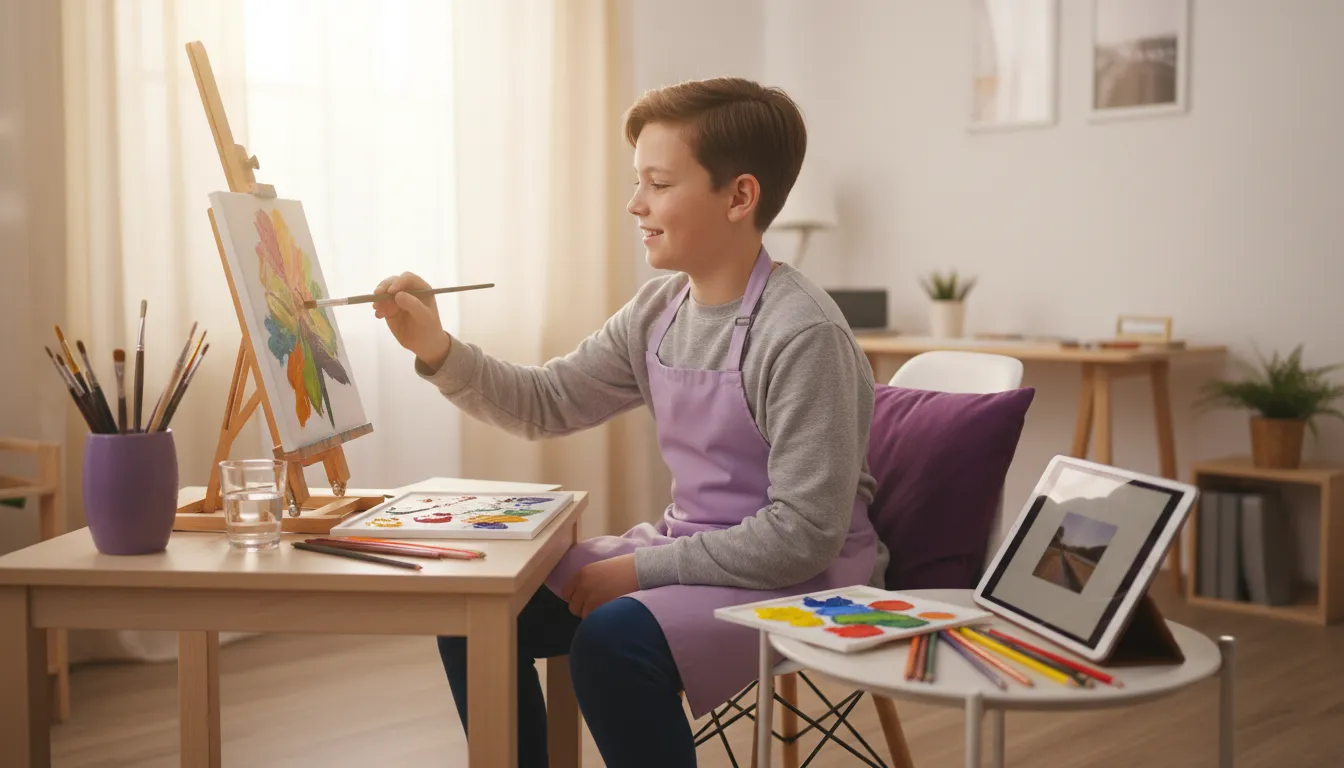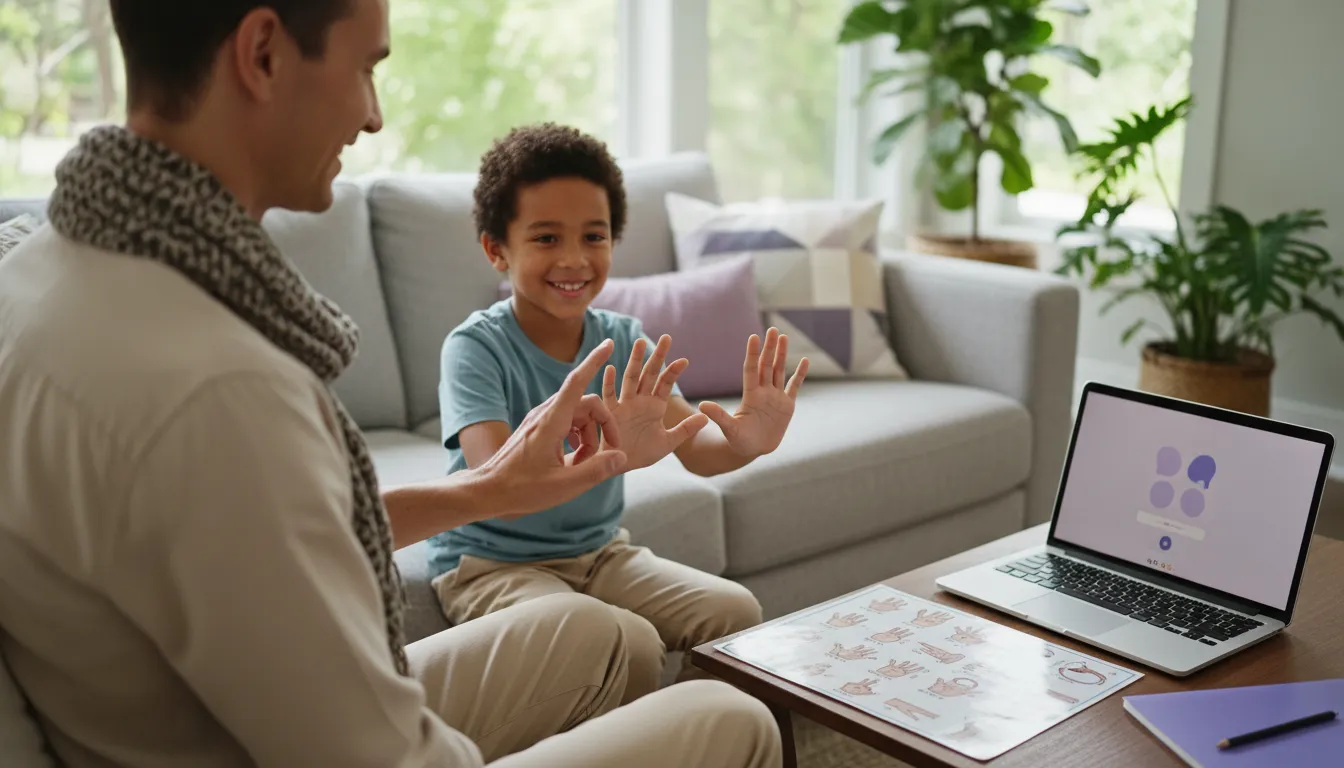Mississippi makes homeschooling straightforward, giving families the freedom to shape a learning experience that reflects their priorities and their child’s interests. With minimal state oversight, you can design a plan that works at your own pace, in your own space, and in the ways your child learns best.
The sections below outline what the state requires, offer practical tips for keeping records, and share ideas for building a curriculum that fits your child’s needs. You’ll also find ways to connect with local support networks and see how resources like Outschool can fit into your plan, with live classes that blend core subjects, creative projects, and interest-led learning to match your child’s pace and curiosity.
Homeschooling options in Mississippi
Homeschooling in Mississippi is refreshingly simple. The state offers one clear path for families who want to teach their children at home: filing a Certificate of Enrollment each year for learners ages 6–17. This single form serves as official notice to your local school district that you’re choosing to homeschool.
Once the form is submitted by September 15 each year, you have full control over your child’s learning experience. There’s no need to register as a private school, join an umbrella organization, or submit curriculum plans for approval. You decide what to teach, how to teach it, and when learning takes place, whether that’s during a traditional school year or on a year-round schedule.
Requirements for homeschooling in Mississippi
Mississippi keeps its homeschool requirements simple, making it one of the most flexible states for families. The process centers on one main step: filing a Certificate of Enrollment each year for each child of compulsory school age.
Enrollment paperwork
To homeschool in Mississippi, complete a Certificate of Enrollment for each child ages 6–17 and file it with your local School Attendance Officer (SAO) by September 15 each year. If your child is currently enrolled in public school, withdraw them before beginning homeschool. The form must be signed in blue ink, and it’s a good idea to keep a copy for your records. You can download the form and find SAO contact information on the Mississippi Department of Education website.
Attendance and instruction
Mississippi does not require homeschoolers to follow a set number of school days or hours. Parents have full control over when and how instruction takes place, whether that’s year-round learning, a traditional school calendar, or a flexible schedule that changes with your family’s needs. You also don’t need to be a certified teacher; parents and guardians can guide learning in the way that works best for their children.
Curriculum guidelines
There are no state-mandated subjects or approved curriculum lists for homeschooling in Mississippi. You’re free to choose or create a curriculum that matches your child’s learning style, interests, and future goals. Some families use textbooks or online programs, while others mix hands-on projects, community learning, and interest-led studies.
Reviewing the Mississippi College- and Career-Readiness Standards (MCCRS) can be helpful if you want to align lessons with grade-level expectations, especially if your child might return to public school later.
Recordkeeping
The state does not require you to submit attendance logs or academic records, but keeping them can be valuable. A basic portfolio might include samples of your child’s work, a list of books and resources used, notes on field trips or projects, and any test results. Good recordkeeping can help with college applications, transferring back to public school, or documenting progress for your own reference.
Testing and assessments
Mississippi does not require homeschoolers to participate in state standardized testing. Families can choose their own ways to measure progress, such as national achievement tests, portfolio reviews, or project-based assessments. If your child plans to attend college, taking exams like the ACT or SAT during the high school years is recommended.
Public funding options for homeschoolers in Mississippi
Mississippi has limited public funding and support available for homeschoolers. The state doesn’t offer general tax credits or stipends for homeschool expenses, and most programs that provide financial support are designed for students enrolled in public or approved private schools. Here’s what parents should know about:
- Education Scholarship Account (ESA) options
Mississippi offers an ESA program for students with special needs, administered by the state Department of Education. However, homeschooled students are not eligible to participate.
- Dual enrollment opportunities
Homeschooled high schoolers in Mississippi may be able to take college courses for credit at community colleges or universities, but it depends on availability. The state doesn’t cover tuition, though, so you’ll also need to pay costs out-of-pocket.
- Special education services
Public schools are required to evaluate homeschooled students for special needs upon request, but they aren’t required to offer ongoing special education services to homeschoolers. Some districts may voluntarily provide limited support, but availability varies by location.
- Extracurricular activities
There’s no statewide rule guaranteeing homeschoolers access to public school sports or clubs. Some districts may allow participation, while others may not, so it’s best to reach out to your local school to see what’s possible.
Mississippi’s public virtual school is only for enrolled public school students. If you prefer an online approach to homeschooling, you can explore private or out-of-state programs, though these typically come with tuition or subscription fees.
Homeschool With Outschool
Outschool offers thousands of live, small-group classes that work seamlessly with Mississippi’s flexible homeschooling approach. Families can choose from:
- Core subjects like math, science, English, and history
- Creative electives including art, music, coding, and creative writing
- One-on-one tutoring for personalized learning goals
- Social clubs and project-based classes that encourage collaboration
- Flexible scheduling to fit any homeschool routine
With Outschool, you can go beyond textbooks with live classes in core subjects, creative projects, and topics that inspire curiosity and make learning enjoyable.
How to get started
Mississippi’s minimal regulations make it easy to begin homeschooling. A few straightforward steps will set you on your way:
- Withdraw your child from public or private school if currently enrolled, completing any required paperwork.
- Review Mississippi’s requirements to ensure this path aligns with your family’s values and learning goals.
- Select or create a curriculum that suits your child’s needs, and consider adding online classes to enrich core subjects.
- Submit a Certificate of Enrollment to your local School Attendance Officer by September 15 each year.
- Set up a recordkeeping system like digital tools, binders, or portfolios, to track progress, attendance, and work samples.
- Join local co-ops, online groups, or statewide organizations for resources and community support.
- Check with your local district for any additional forms or preferences they may have.
Find support through homeschool communities in Mississippi
Building connections with other homeschooling families can make your journey more rewarding. Across Mississippi, you’ll find groups that welcome parents from different backgrounds, offer practical advice, and create spaces for children to learn and socialize together. These networks range from statewide organizations to small local co-ops, giving you options to match your family’s needs.
Statewide Organizations
Local Groups and Co-ops
- Parent Educators and Kids (PEAK) – An inclusive homeschool community with chapters in Jackson, Meridian, and Tupelo, offering academic and social opportunities through co-op classes, field trips, and group events.
Frequently asked questions (FAQs) about homeschooling in Mississippi
Many parents have similar questions when exploring homeschooling in Mississippi. These answers address the most common concerns families have about qualifications, testing, activities, and transitions.
Do I need a teaching certificate or special qualifications to homeschool in Mississippi?
No teaching certificate or special educational qualifications are required to homeschool your children in Mississippi. The state trusts parents to make educational decisions for their families without requiring formal training or degrees.
Is standardized testing required for homeschooled students in Mississippi?
Mississippi does not require homeschooled students to take state standardized tests. You can choose to use national assessments like the Iowa Test or Stanford Achievement Test for your own tracking purposes, but these are completely optional. Many families find informal assessments and portfolio reviews more meaningful for measuring their child's progress.
How do homeschooled students earn a diploma in Mississippi?
As the parent, you have the authority to issue your child's high school diploma when they complete their homeschool program. You decide what graduation requirements look like based on your family's goals and your child's college or career plans, such as four years of English and math or other college preparatory standards. Keep detailed records of coursework and any assessments to support future educational transitions.
Can my homeschooled child participate in public school sports or extracurricular activities?
Mississippi law does not guarantee homeschooled students access to public school sports or extracurricular activities. Each school district sets its own policies regarding participation, so you'll need to contact your local district directly to learn about their specific rules. Many homeschool communities create their own sports leagues and activity groups as alternatives.
What happens if I want to return my child to public school?
Returning to public school is simple, though the receiving school will evaluate your child's records to determine appropriate grade placement. Maintaining detailed portfolios of your child's work, attendance records, and any test scores will help smooth this transition. Contact the school's guidance counselor early in the process to understand their specific requirements for enrollment.
Are there any ESA (Education Savings Account) programs for homeschoolers in Mississippi?
Mississippi does not currently offer Education Savings Account programs for homeschooling families. All homeschooling expenses come from your family's budget, but you have complete freedom to choose curricula, resources, and educational approaches that fit your needs and values. Many families access flexible online learning options and find creative ways to share costs through co-ops and group purchases.
Get started with homeschooling with Outschool
Homeschooling in Mississippi offers families a rare level of flexibility. With minimal regulations, you can shape a learning plan that reflects your child’s needs, interests, and pace, blending traditional subjects with creative projects, incorporating your family’s values, and adapting as your child grows. Meeting the state’s requirements comes down to one annual form for each child of compulsory school age.
That freedom also leaves room to explore resources that enrich your homeschool experience. Online learning platforms like Outschool can complement your approach with live classes in academic subjects, hands-on activities, and opportunities for connection with other learners, all while fitting into the rhythm of your family’s routine.






.svg)
.svg)







